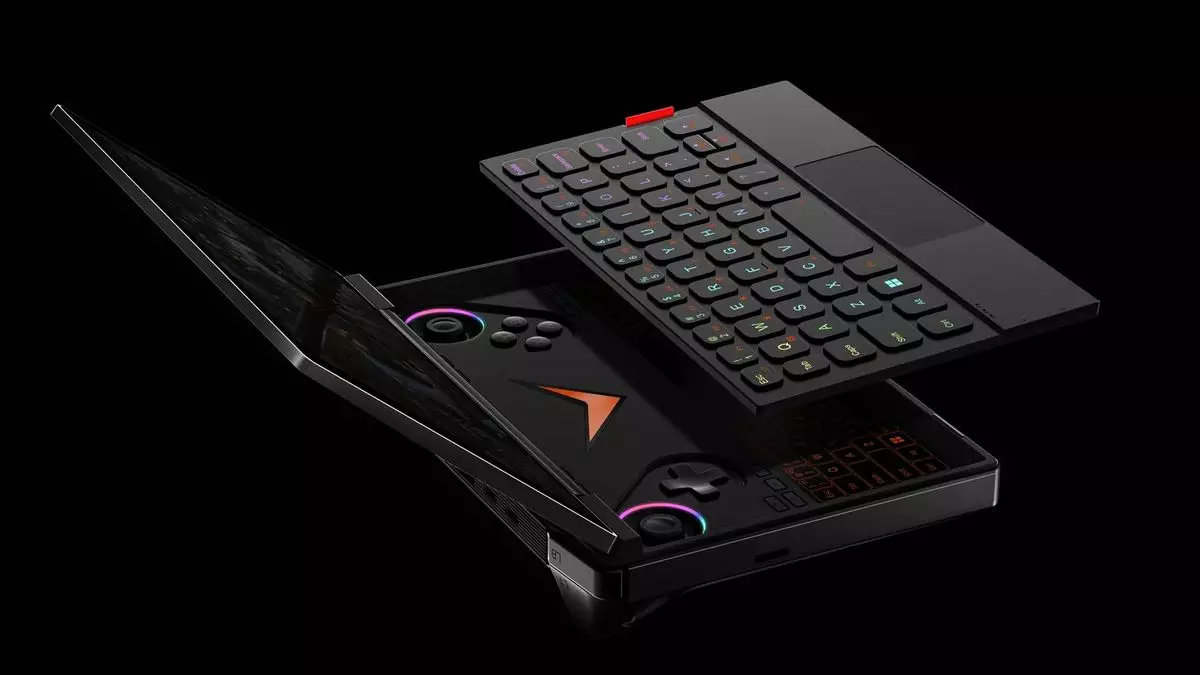The realm of portable gaming has significantly evolved over the past few years, and as we approach 2025, this trend is set to take a substantial leap forward. One of the most intriguing innovations to emerge is the OneXPlayer G1, a handheld gaming device that promises to combine the best features of traditional laptops with the portability of gaming consoles. This article will delve into the features, design, and potential impact of the OneXPlayer G1 on the handheld gaming landscape.
As technology matures, so do the possibilities within the gaming sector. The OneXPlayer G1 exemplifies this evolution by introducing a versatile and dynamic design that enables players to engage in gaming, productivity, and entertainment tasks seamlessly. The G1’s detachable keyboard distinguishes it from other devices, allowing for a customizable user experience. Such innovations hint at a future where handheld devices can effortlessly transition between different functions and uses.
This aligns with the broader trend of handheld gaming PCs becoming more mainstream. Before, portable gaming devices were primarily limited to dedicated consoles or handhelds with less capability. However, with advancements like the HX 370 processor—previously featured in high-end models such as the OneXFly F1 Pro—users can expect remarkable performance, even at impressive 1080p resolution. Support for features like FidelityFX Super Resolution 3 (FSR 3) and frame generation will further enhance the gaming experience, making it comparable to traditional gaming setups.
The aesthetics and practical functionality of the OneXPlayer G1 have not gone overlooked. Its design is compact and sleek, akin to the GPD Win Max 2—yet it showcases a unique feature: a detachable keyboard. This element allows for flexibility; users can switch between laptop mode for productivity and handheld mode for gaming, effectively merging two worlds into one device. Such versatility is unparalleled among current handheld gaming devices, making the G1 an appealing option for gamers and creative professionals alike.
Moreover, the G1 presents a smaller screen compared to other models, but this design choice has its advantages. A more compact display aids in portability without sacrificing too much screen real estate, ensuring that gamers can enjoy a satisfying visual experience on the go. As seen in the teaser on their Indiegogo page, the integration of built-in controls alongside the detachable keyboard provides a seamless transition between various modes of use, symbolizing a future where functionality is not confined to specific formats.
With the OneXPlayer G1 setting a new benchmark, the portability of handheld gaming devices may pave the way for innovative designs in the industry. Similar to what Acer has attempted with its Project DualPlay and the dual-screen design of the Ayaneo Flip DS, the G1’s versatility will likely inspire other manufacturers to push the boundaries of what handheld devices can achieve. As manufacturers experiment with different form factors, consumers stand to benefit from an enhanced range of options that cater to diverse gaming needs.
However, while excitement builds around the G1, it’s important to manage expectations regarding pricing. History suggests that devices with high-end specifications come with a price tag to match. The OneXFly F1 Pro is already indicative of the expected cost for gamers looking to get their hands on the G1, and it may require careful consideration of budget versus features.
The OneXPlayer G1 represents more than just another product launch; it embodies the spirit of innovation in the handheld gaming sector. As we inch closer to 2025, the potential for handheld gaming PCs appears boundless. The G1’s design, accommodating both gaming and productivity needs while ensuring exceptional performance, could herald a new standard for the handheld market. Combined with the incremental progress made by competing devices, the future looks promising for portable gaming enthusiasts. For those who value both versatility and power, the OneXPlayer G1 could be a game-changer in the journey towards a fully integrated gaming experience.

